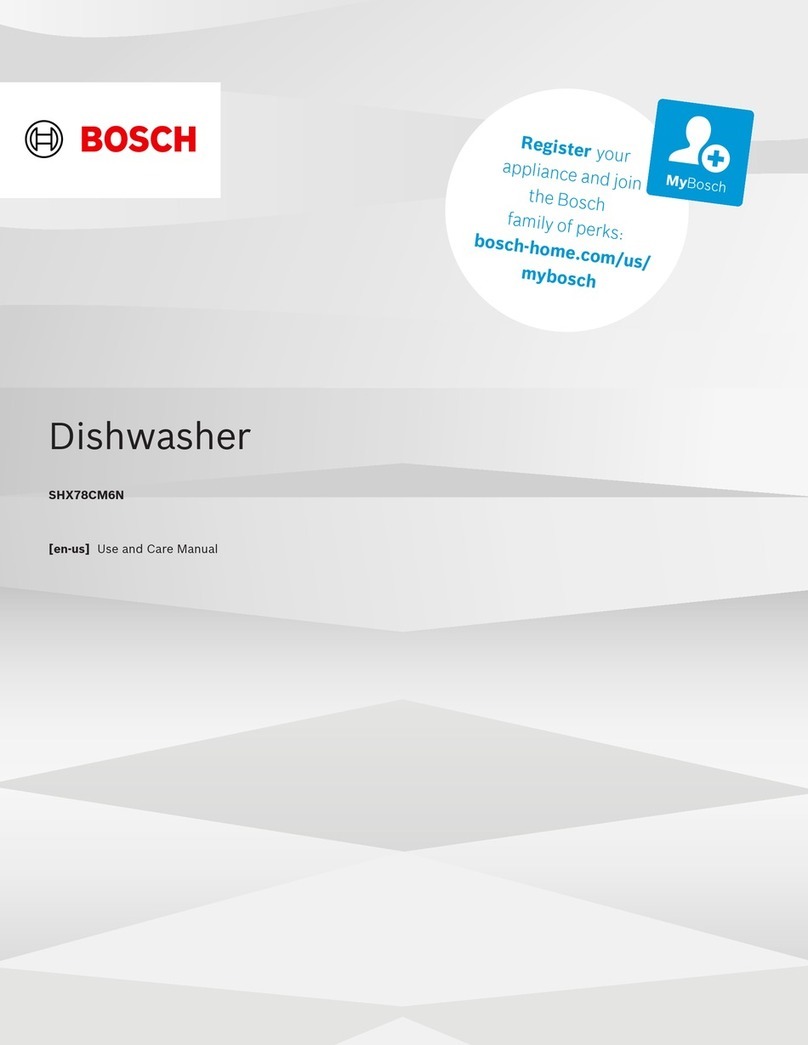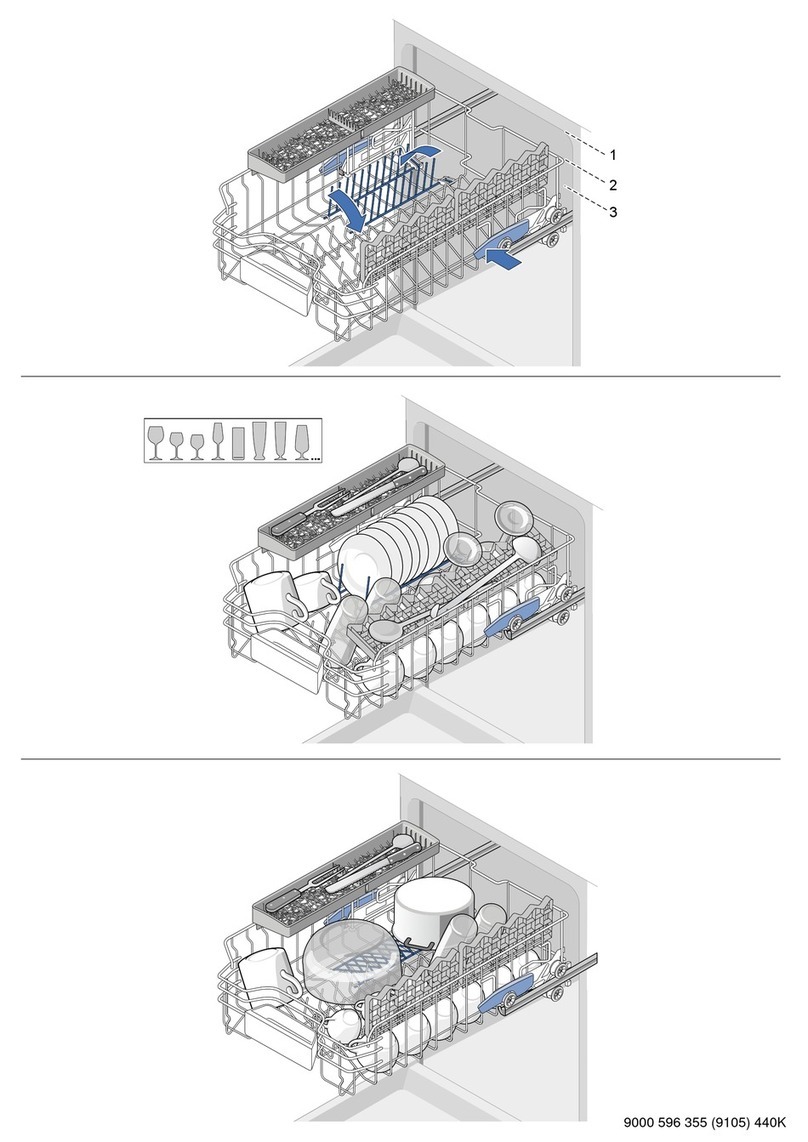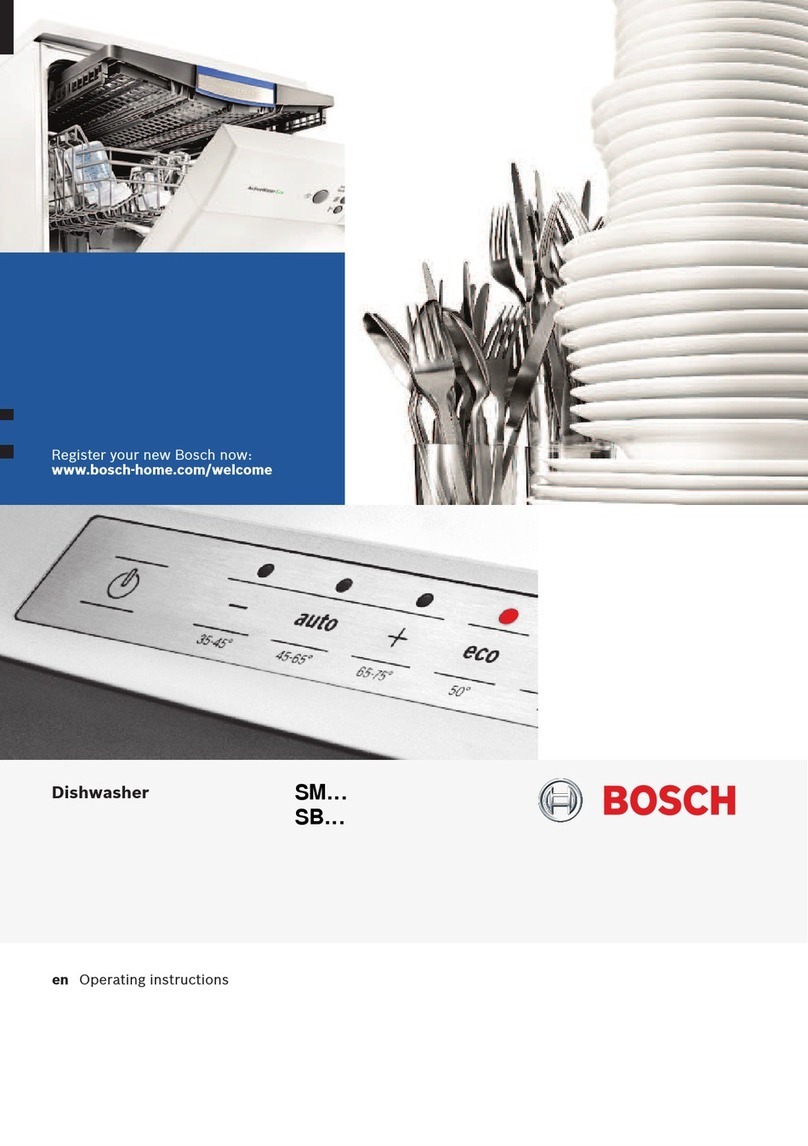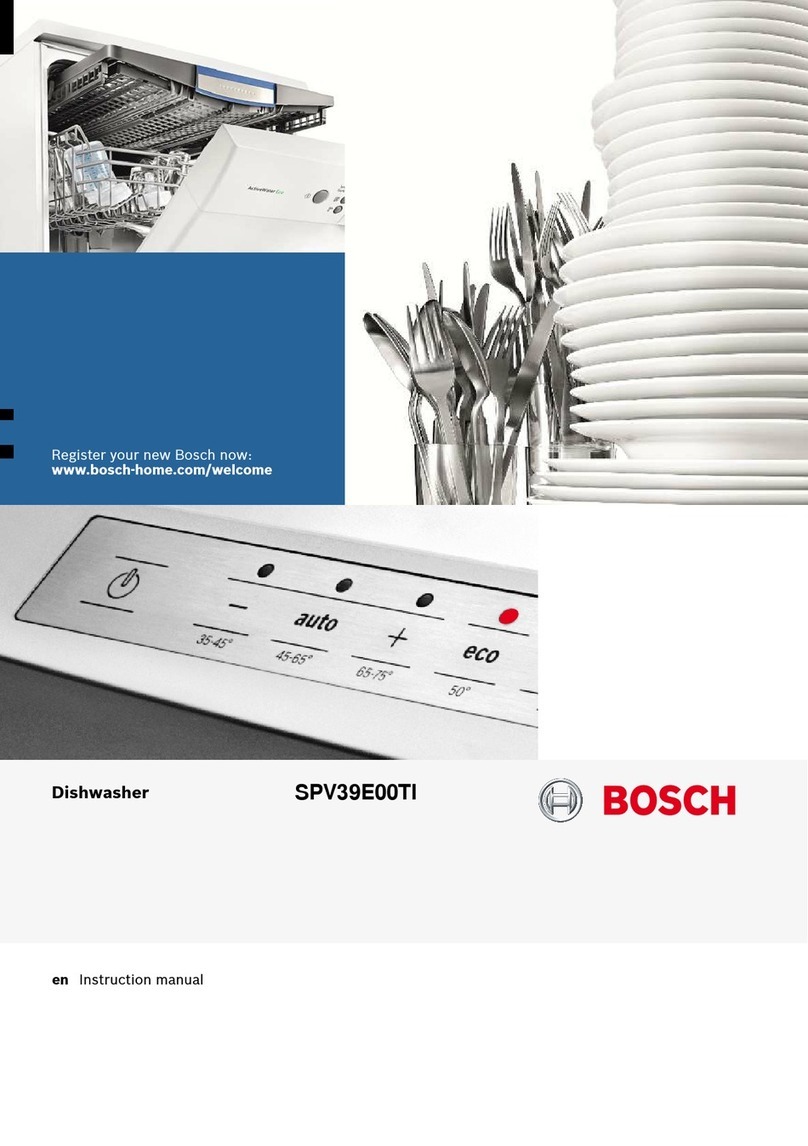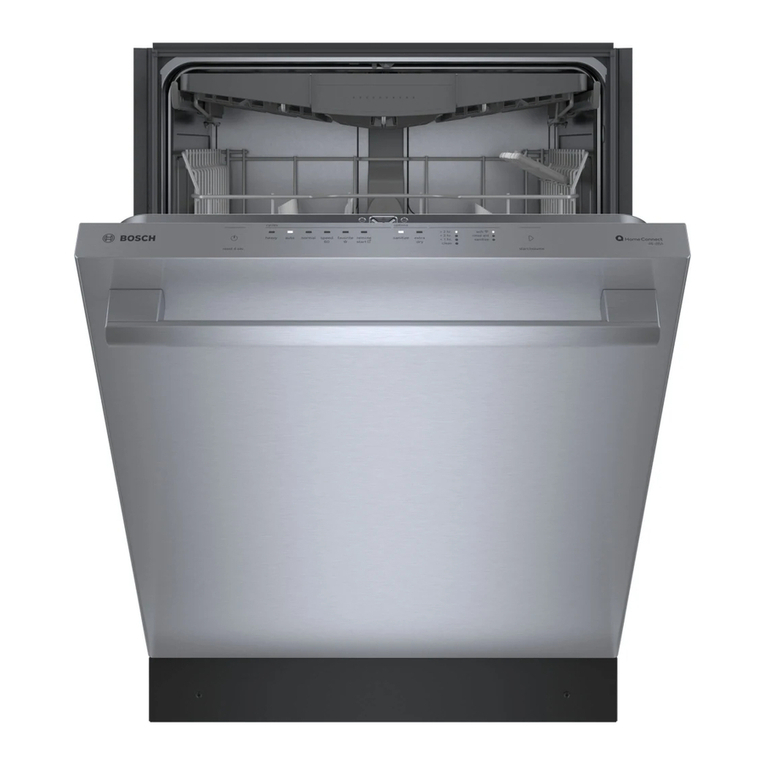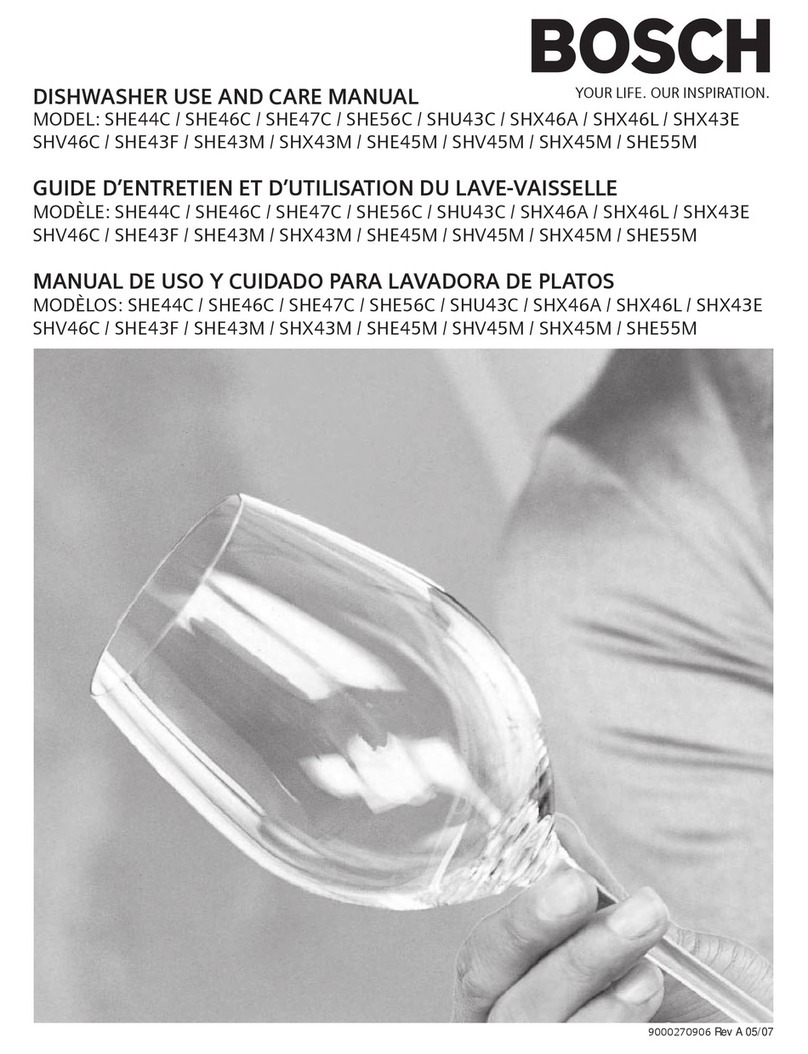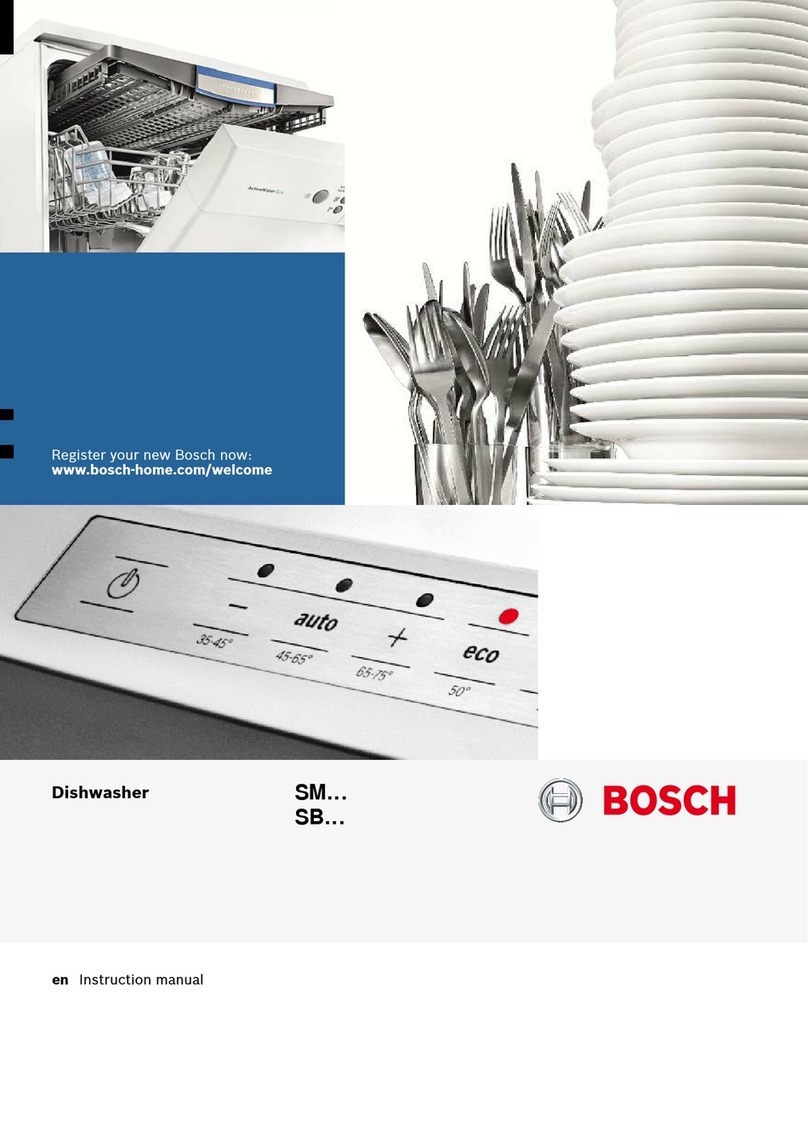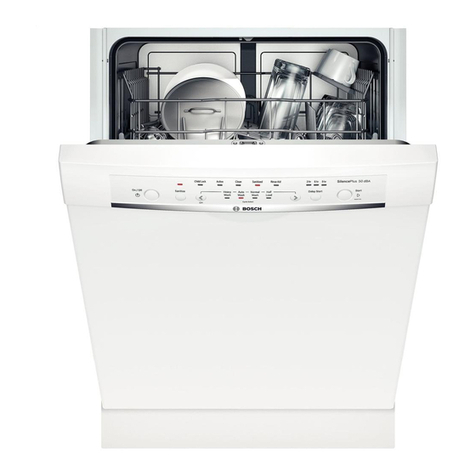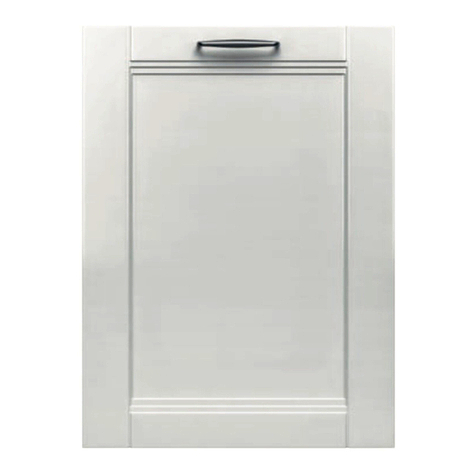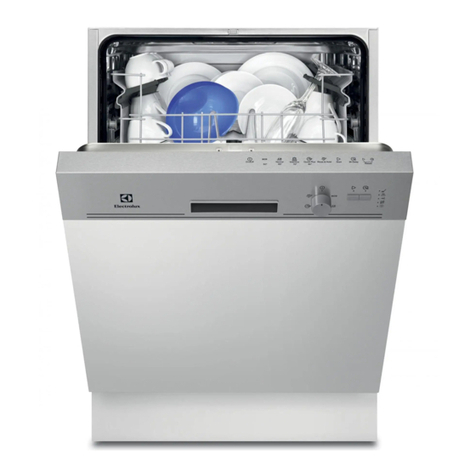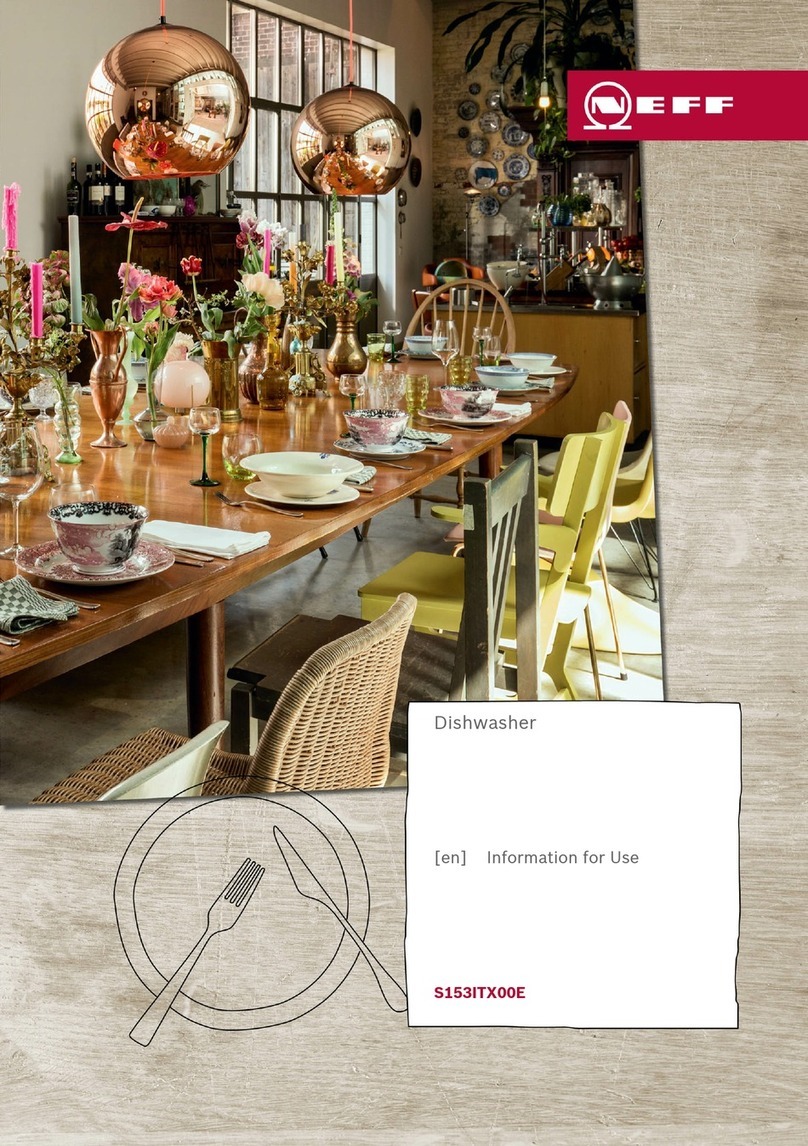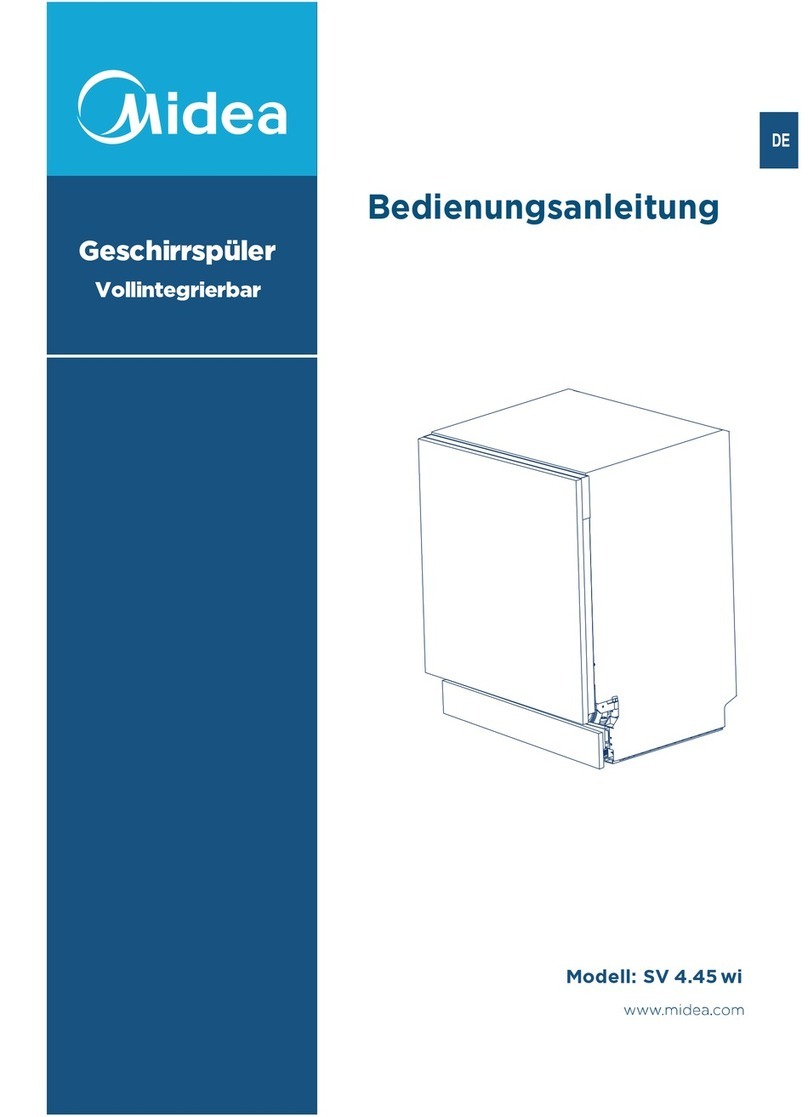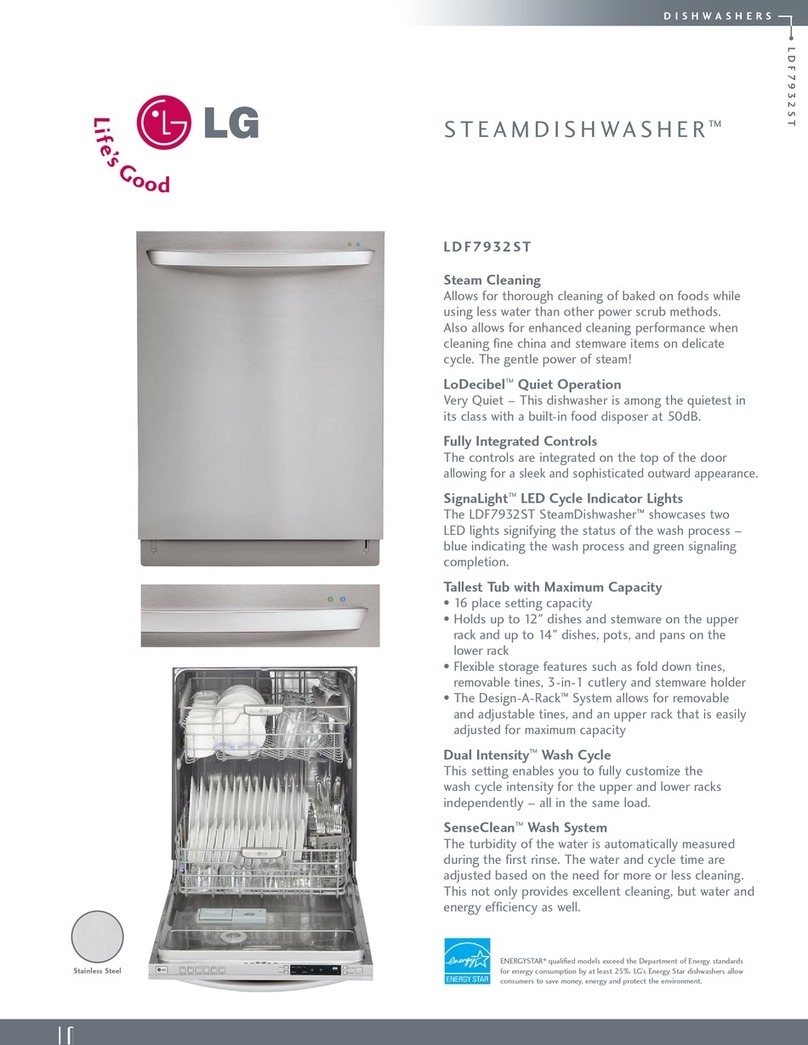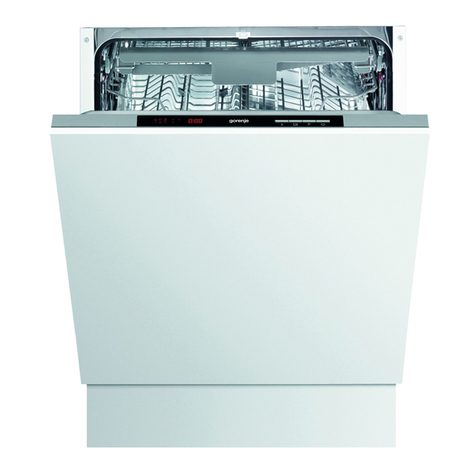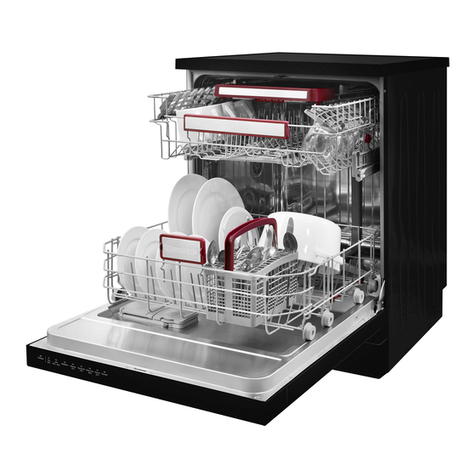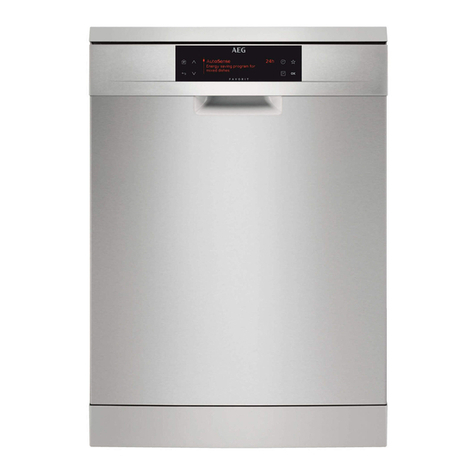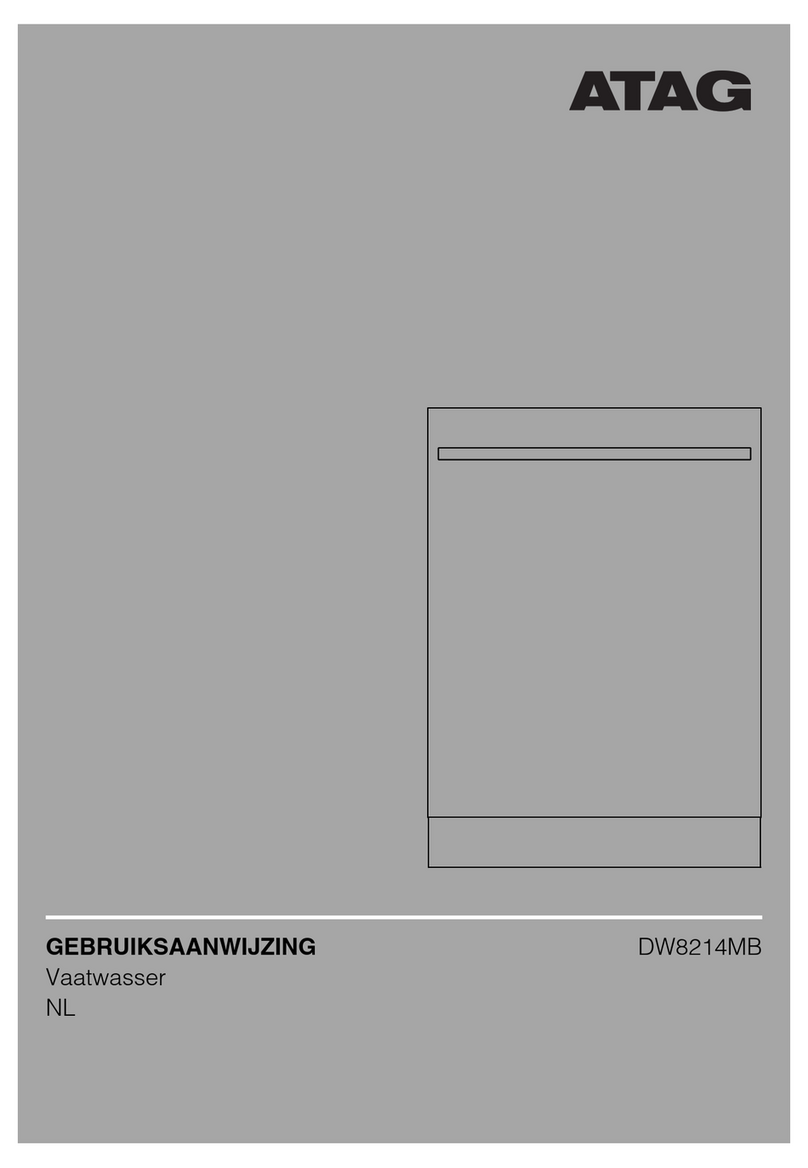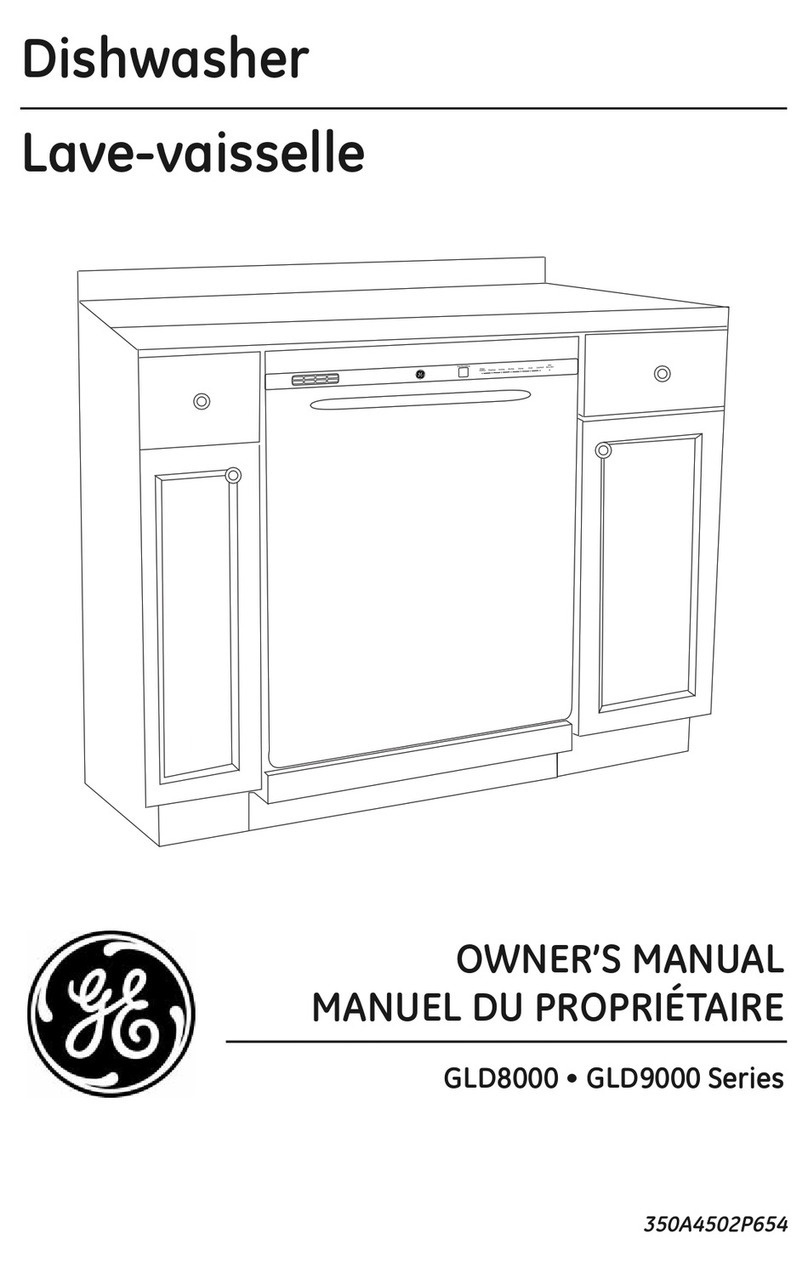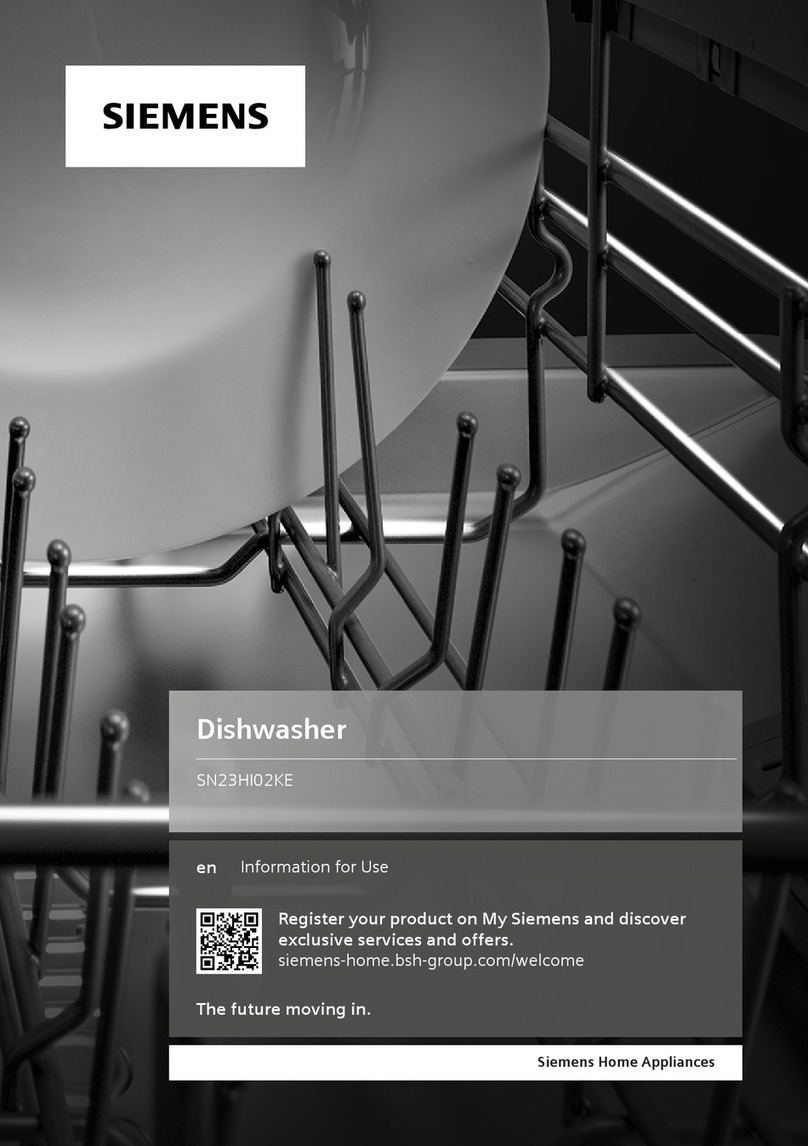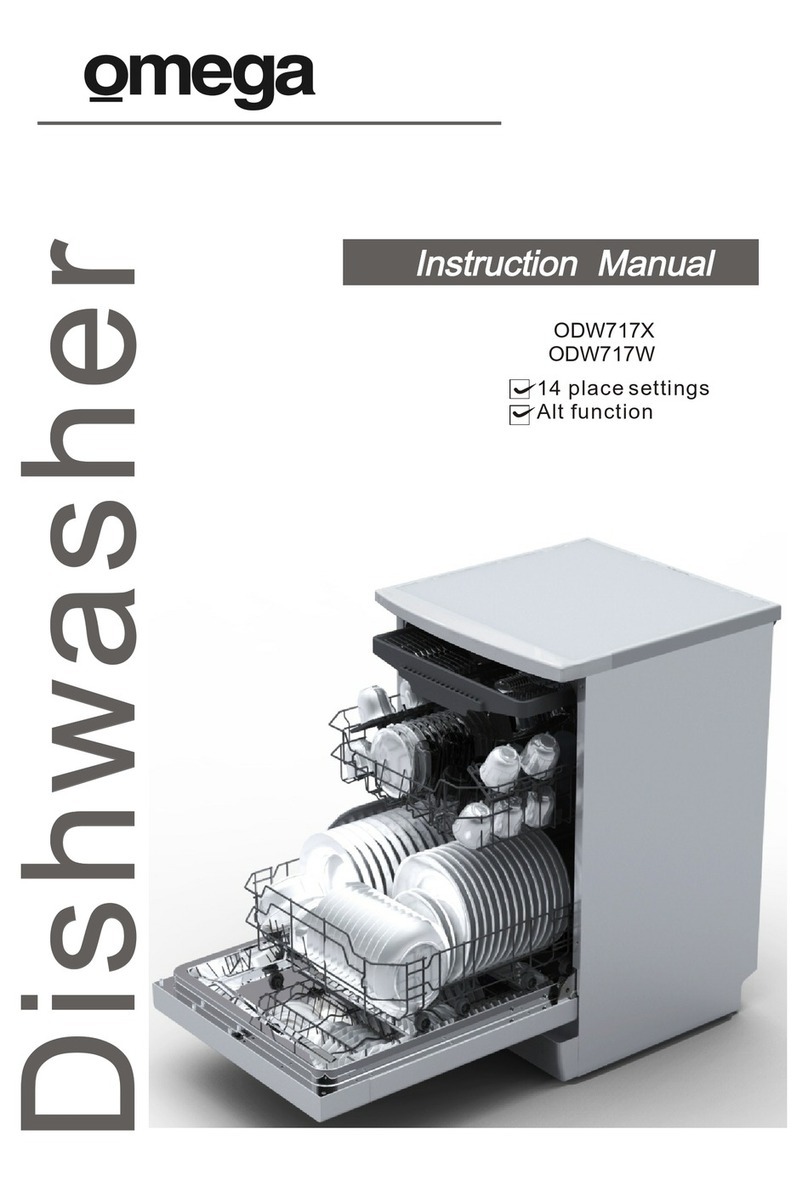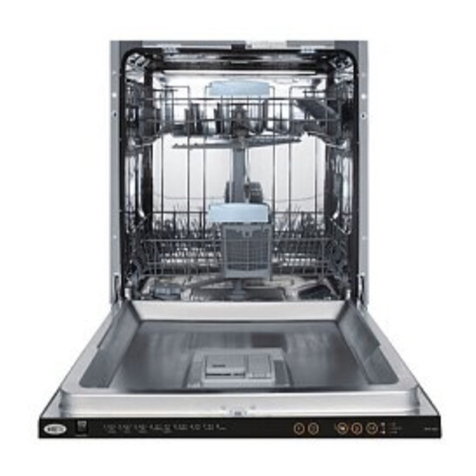
NL
Table of contents
Safety.................................................. 4 Before using for the first time .................. 21
General instructions .................. 4
Destination of the device.................. 4
Restriction of users ............ 4
Secure installation................................. 4
Safe use.................................................. 6
Damaged device ......................... 8
Dangers for children..................... 8
First time use..... 21
Softening System .................. 21
Overview of the water hardness
settings........................... 21
Set water softening.................. 22
Softening salt ............................. 22
Switching off water softening.......... 23
Avoiding material damage ........ 10 Softening system regenerative
run .................................................. 23
Safe installation.................................. 10
Safe use.................................. 10 Rinse System ................................ 24
Environmental protection and
saving................................................... .... 11
Rinse aid ......................... 24
Setting the rinse aid
amount ................................................ 24
Disposing of the packaging .......... 11
Saving energy ................................ 11
Aqua sensor ................................... 11
Switch off rinse system... 25
Detergent .................................. 25
Set up and connect................. 12 Suitable detergents .......... 25
Unsuitable dishwashing detergent .................. 27
Scope of delivery .................................. 12
Setting up and connecting the
device................................................... ....... 12
Notes on
detergents................................................................... .. 27
Waste water connection ................... 12
Drinking water connection .................. 13
Electrical connection .................. 13
Filling detergent ................................ 27
Crockery................................... 28
Damage to glass and crockery
good ................................................ 29
Getting to know your device............ 14
Device ................................................. 14
Controls..................... 15
Loading crockery ......................... 29
Unloading crockery ................... 30
Programs .................................. 17 The Ministry in essence................. 30
Notes for test institutes ..... 18 Opening the appliance door .................. 30
Switching on the appliance .................. 30
Set program .................. 31
Set additional function .................. 31
Make time setting 1 ....................... 31
Start program .................. 31
Interrupt program .................. 32
Cancel program .................. 32
Switching off the device .................. 32
Additional Features .................................. 18
Equipment.................................................. 18
Upper basket ......................... 19
Lower basket ......................... 19
Cutlery basket ................................... 20
Folding plate supports .......... 20
Cutlery basket heights ......................... 21
1 Depending on the device version
2
